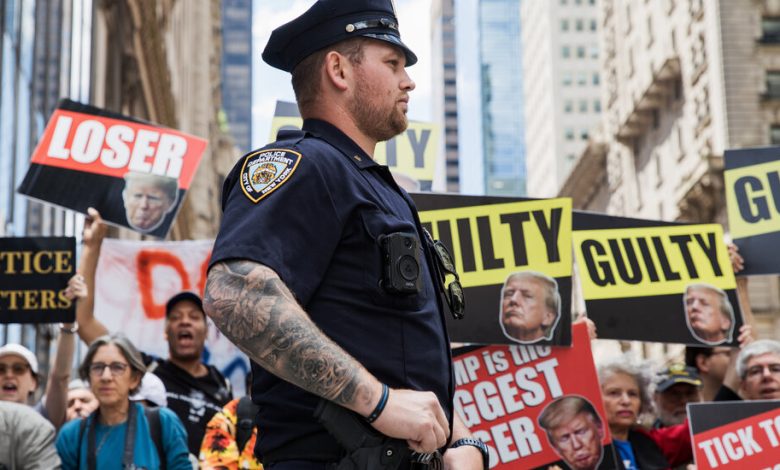Prison Time Is the Real Factor in the Trump Verdict’s Impact on 2024

People are not always great at predicting their own behavior. We know what we think and feel in the moment, but are much less effective at guessing how we will respond to different conditions in the future.
I see this all the time as a pollster who thinks about how to ask people questions that will reveal how they genuinely think and feel. If you ask me what I am doing right now, I would say I am writing this essay — and that would be an accurate response. If you ask me whether I would make pasta for dinner later this week if I knew that pasta sauce was going on sale at the grocery store, my answer would be less accurate. Am I even going to want pasta?
Similarly, if you ask voters how they feel today about Donald Trump, trust me — they know. Voters’ attitudes toward Mr. Trump and his personal character have been long established. But asking voters what they might do in the future given an unprecedented change in circumstances, like a major presidential candidate being sentenced to time in prison, is fraught with uncertainty.
As a result, one of my biggest pet peeves as a pollster is the “more or less likely” survey question. In this type of question, respondents are asked if a certain hypothetical situation or piece of information would make them “more or less likely” to take a future action. This is often used to test campaign and political messaging strategy and takes the form of “If you knew that Candidate A voted to raise taxes, would that make you more or less likely to vote for him?”
In the Trump legal dramas, this type of question has been a pollster favorite, with resulting takeaways like this one last week: “One in 10 Republicans Less Likely to Vote for Trump After Guilty Verdict.” Whenever I see that kind of headline, I wonder if those one-in-10 Republicans were ever voting for Mr. Trump anyway, or were they “Never Trump” Republicans who had already been leaning to President Biden and were now simply even more firm in their defection? These sorts of things matter greatly when it comes to gauging whether the verdict is having a material effect on the race.
The still-imperfect but far better way to measure the impact of some new development is to see if people have actually changed their voting intentions. It turns out that so far, in the wake of Mr. Trump’s conviction on 34 felony counts of falsifying business records, not very many people have. My firm asked almost 500 voters nationwide in the day after the verdict whom they’d vote for and whether the verdict had changed their votes. The catch? We had already surveyed those people in the last few months, so we knew what they’d told us earlier.
